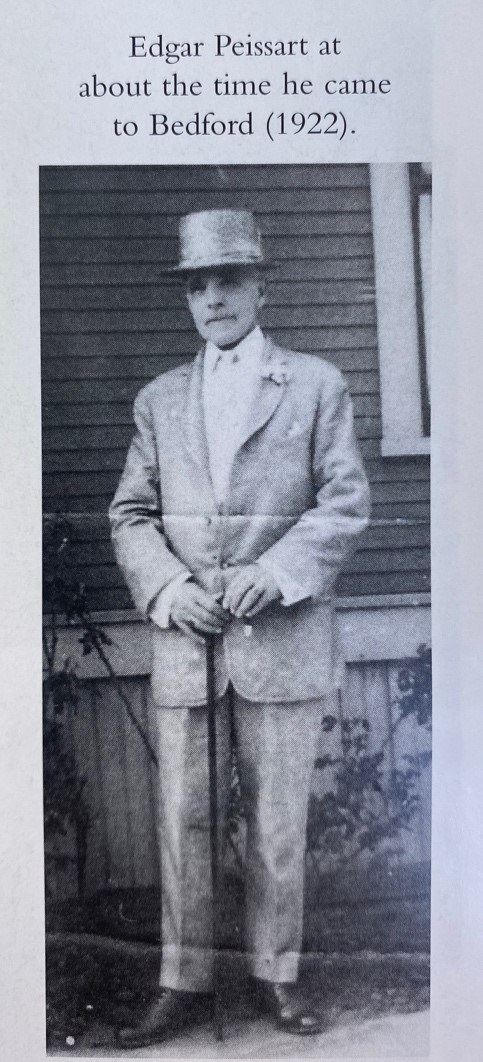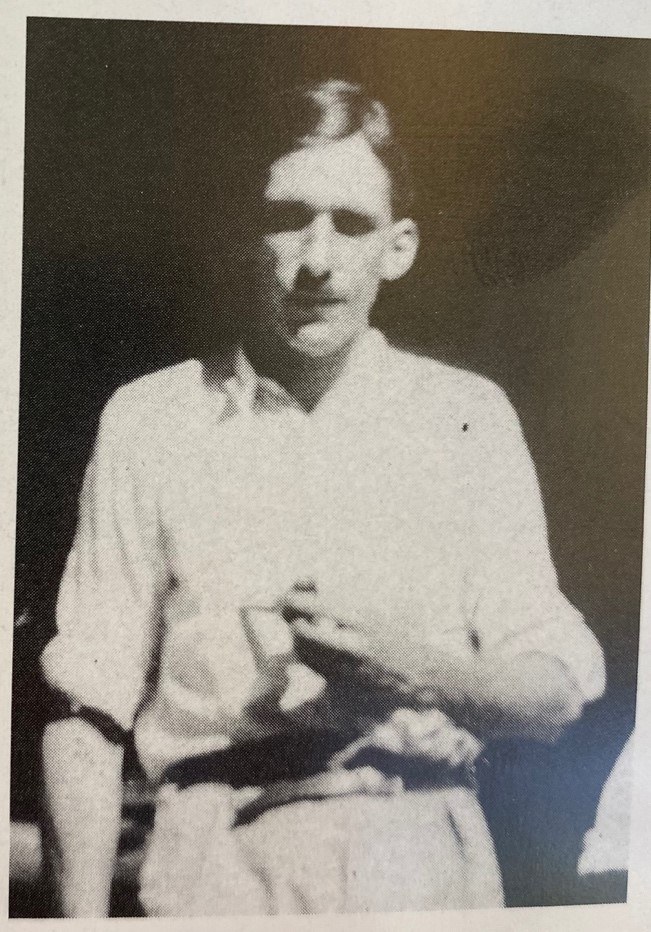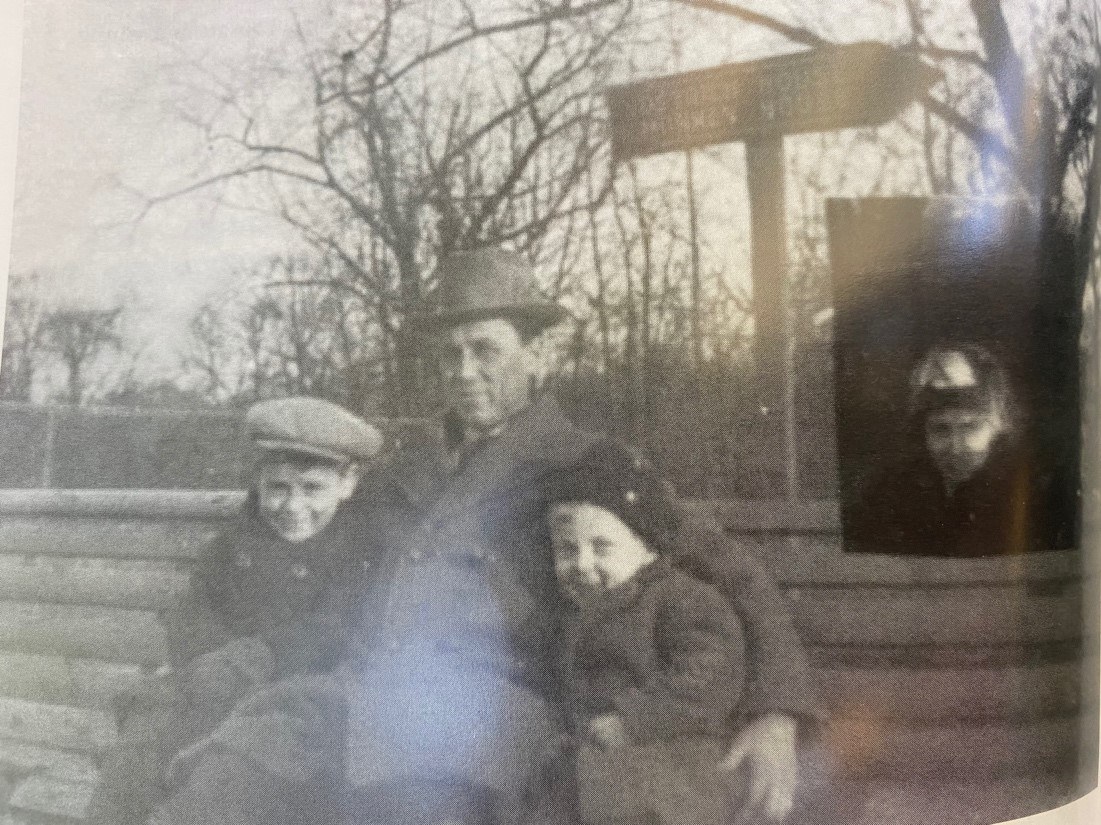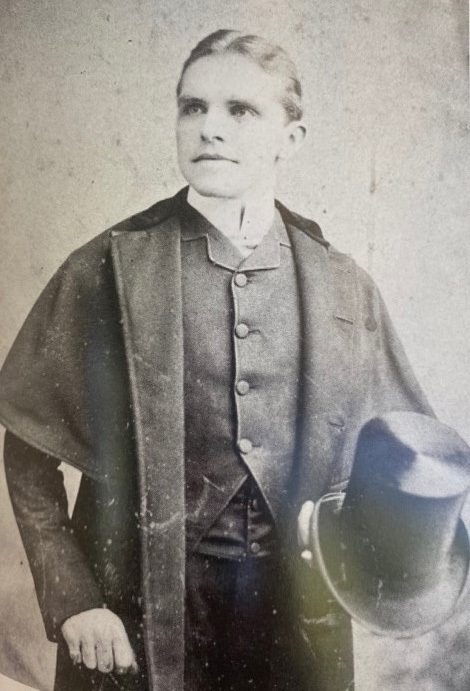This month, all over the world, people are celebrating Pride month. During this important event we want to show our support to the LGBTQIA+ community and shine a light on the experiences of Panacea Society members Edgar Peissart, Donald Ricketts and Jesse Green.
Written by Volunteer Alison Smythe
Who was Edgar Peissart?
Edgar Peissart was an American from Pennsylvania who joined the Panacea Society in 1922. He immediately charmed the ladies of the society with his charisma, flamboyance and confidence. He wore rings, bow ties and top hats, and enjoyed performing. Octavia herself was won over by his voice when he ‘recited parts of the “Merchant of Venice”’ at a social evening and she described having ‘never heard anything so tremendous’.

Prior to joining the Panacea Society, Edgar had been a notable member of various religious communities in America including the Koreshan Unity community, the Shakers and the House of David. He spent a total of three decades exploring his esoteric religious and spiritual beliefs and theories. During this time, he discovered the Panacea Society and after years of bombarding the society with letters, he arrived in Bedford ready to shake up the community. The religious communities across America that Edgar had been a member of shared some similarities to the Panacea Society’s believe system. All groups believed celibacy would lead to immortality and also taught that God was both male and female. According to their teachings, both the male and female elements of the divine needed to be manifested on earth Edgar was convinced of his call to be the Male element and had discovered in Octavia, his female counterpart.
Finding himself within Octavia’s inner circle shortly after joining the society, Edgar enjoyed the closeness he had achieved, and this perhaps fuelled his own desires for power. He was in contact with Helen Morris, a prominent non-resident member of the Panacea Society and appeared to be trying to gain her support for his leadership bid. Edgar also began relationships with two Cambridge University students and Panacea Members, Donald Ricketts and Jesse Green, who handed out Panacea leaflets on their university campus. Beginning his relationship with Donald in 1922, Edgar had imbued their sexual relations with sacred meanings. Edgar was a proponent for celibacy to achieve immortality but interpreted these rules to only apply to heterosexual relationships. In contrast, his relationship with Jesse Green wasn’t explained through any theological meaning or justification. They were sexually attracted to one and another and did not repress their desires.
 Donald Ricketts
Donald Ricketts
Around Edgar a gay subculture had begun to take shape and suspicions began to emerge in the Panacea community. After Edgar was displaced from Octavia’s inner circle, relations began to fray and culminated in a heated argument between Octavia and Edgar. Donald Ricketts was called to the Panacea Society and revealed the relationship he had with Edgar. Besides from deeming homosexuality as ‘unnatural’, the Society was mostly concerned with the theological sin. They believed Edgar to be the incarnation of Sin and an evil force in the society, looking to undermine women’s role in the redemption of the world. They placed Edgar on trial, and he was dismissed from the Panacea Society in 1923, just one year after his arrival.
Confessions were delivered to Octavia from Donald and Jesse detailing their relationships with Edgar. They also shed light on further flirtations and relationships that had been occurring involving sons of Panacea Members.
During the interwar period homosexual relationships were becoming more public and some had chanced sex with men as and when the opportunity arose. In the 1920s homosexuality between two men was punishable under the Criminal Law Amendment Act 1885. The Act changed the terms of punishment for convictions of ‘gross indecency’. Oscar Wilde was prosecuted under this act in 1895 and sent to prison for two years’ hard labour. The Panacea Society did not report Edgar, Donald or Jesse, to the police and preferred to manage the scandal within the community. Edgar was dismissed from the community, but Jesse and Donald continued as active non-resident members of the Panacea Society.
 Jesse Green, with his two children in America. A photo of his wife, Marie, has been pasted onto the scene.
Jesse Green, with his two children in America. A photo of his wife, Marie, has been pasted onto the scene.
Having same-sex relationships in the 1920s could bring condemnation from society, with persecution from the authorities a very real threat. Illegal at the time, homosexuality was a form of love that had to be kept secret, with being ostracized and imprisoned the norm for men found to be in same-sex relationships. The Panacea Society offered some respite from this world because it was so enclosed. In many ways the society upheld conservative traditions, but it also functioned differently to the outside world. This perhaps allowed Edgar, Jesse and Donald the chance to enjoy their sexuality on their own terms without fear of persecution.
 Edgar Peissart
Edgar Peissart
Here are some LGBTQIA+ charities you can contact for support, community and/or guidance:
| Organisation | What they do | Contact information |
| Q:alliance | A registered charity that provides support, information and representation for the LGBTQ+ people who live, work and play in Milton Keynes. |
|
| QYouth
| An LGBTQ+ Youth Group based in Bedford. We meet in a Central Bedford location, with a DBS checked youth worker, in a safe and welcoming space. | E: qyouthbedford@qalliance.org.uk W: https://en-gb.facebook.com/pg/QYouthBedford
|
| OK2B | A support group for young people in the Luton area who are lesbian, gay, bisexual or transgender. | |
| The Beaumont Society | A national self-help body run by and for the transgender community.
| https://www.beaumontsociety.or... enquiries@beaumontsociety.org.uk 01582 412220
|
| Mermaids | Provides support to transgender, non-binary and gender-diverse children, young people and their families through secure online communities, local community groups, helpline services, web resources, events and residential weekends.
| https://mermaidsuk.org.uk/about-us/
|
References
- Jane Shaw, Octavia, Daughter of God: The Story of a Female Messiah and her Followers . (2011, Jonathan Cape)






